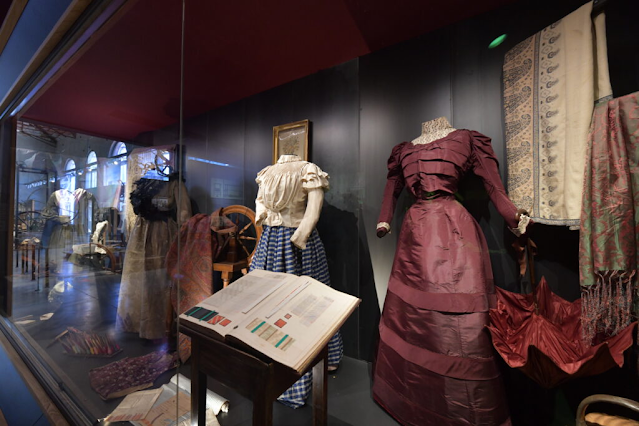Do you feel sympathetic towards a vulnerable Regency hero ?
Costume Parisien , courtesy of Wikipedia
Since time began the middle son has found his position difficult. The oldest has importance and responsibility, the youngest gets an easier deal. How is Number 2 going to make an impression?
The three Montailhac brothers are all very different, but loyal and loving to each other, even if there is some rivalry. Arnaut, the second son, feels a failure when he compares himself to his older brother, Henri, a skilled diplomat. In addition, his younger brother, Joachim, always very close to the land, manages the estate, both land and stock.
Thus both Arnaut's brothers have responsible roles and enjoy their work. Arnaut is desperately seeking a way to do something worthy with his life. It doesn't help that he's the handsome one, and the ladies all find him irresistible. He doesn't want to be considered a worthless rake.
His mother is also concerned. She tells him, "stop chasing girls just
to amuse yourself, "
"But, mother, I don’t chase
them," he protested, "really, I don’t." "It is time for
you to settle down,’ his mother announced, waving her fan earnestly. "you will discover how wonderful it is
to be happily married."
He couldn't help laughing at her hopeful expression. Then he heaved
a deep sigh. "Mother, I have nothing to offer a wife. Compared to Henri, I haven’t achieved anything worthwhile
so far."
So how can Arnaut deal with his vulnerability?
What role is there for him to show his positive qualities? Entrusted [at last] with a quest, he needs courage, endurance, diplomatic skills, and at the same time he has to fight off an excited gaggle of London ladies, all enchanted by his stunning good looks, his charming smile and his seductive French accent.
He perseveres, getting help from the only young woman who doesn't respond to his charms. But when Louise senses his despair at failing in his quest, she comes to the rescue.
Hartwell House, Aylesbury.
Arnaut leaned his head back against the
squabs and closed his eyes. He
looked exhausted and Louise felt a stab of anguish that their mission had all
been in vain. There was silence while she sought for words to comfort him. All
at once he drew in a deep breath and sat up.
‘What a long day,’ he said, ‘but a
successful one, thanks entirely to you and your estimable grandfather.’
‘Successful?’ She sat up, her weariness
forgotten. ‘You gained his agreement?’
He beamed
at her, his eyes shining. ‘Signed and sealed. Together with a bucketful of advice
for a hot-headed young man, but I’m used to that sort of thing.’ He rolled his eyes
comically. She laughed with relief at his improved mood. He added in a more serious tone, ‘In addition,
I learned an important lesson today. Now I’ll pity my brother Henri rather than
envy him. Ouf!’ he threw up a hand to accompany the exclamation. ‘Diplomacy is nothing
but waiting all day long for a few minutes’ conversation with the people in power.’
He made a comical face. ‘And also keeping calm and polite while waiting.'
So now Arnaut begins to gain some self respect and confidence in his ability. He still has a long way to go, villains to outwit and a girl to woo. [and those London ladies haven't given up the chase, either.]















